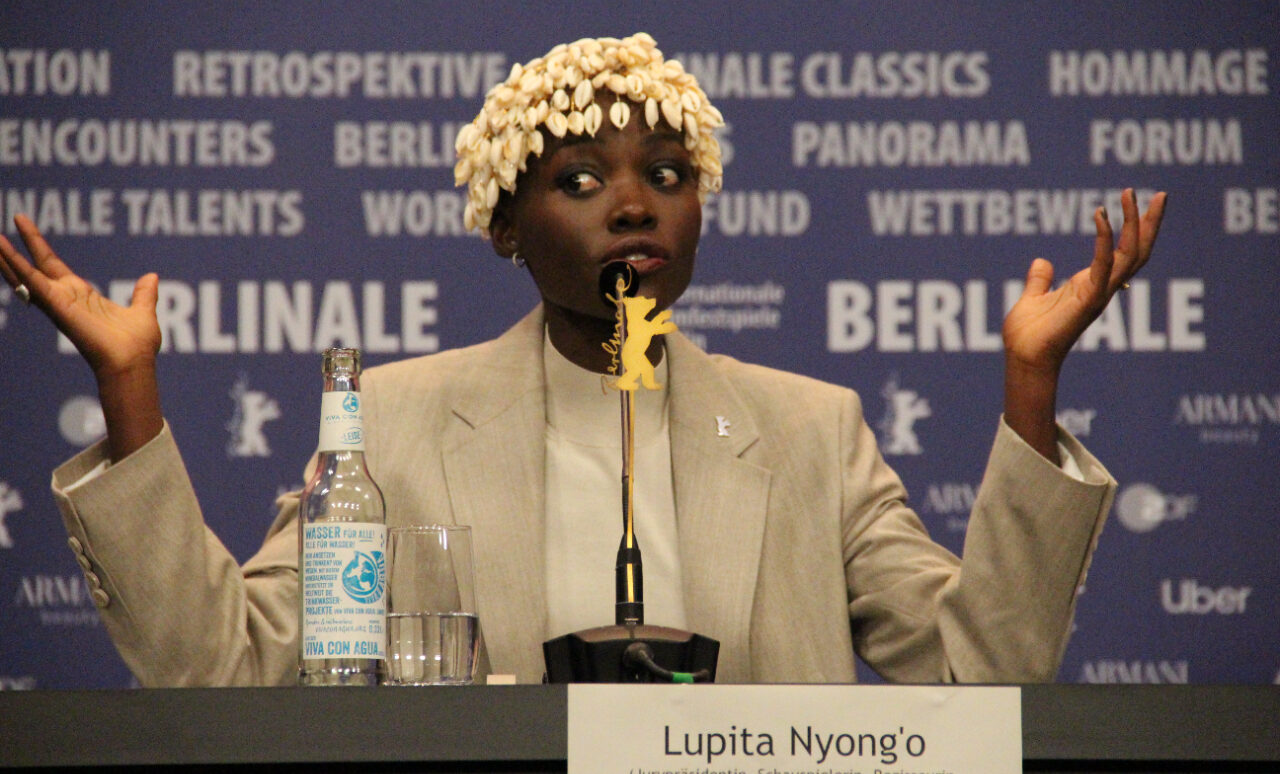Berlinale 2024 opens with politically charged press conference addressing xenophobia, Putin and Gaza

Berlin’s customary grey sky stopped raining just in time to welcome this year’s international jury members to the first press conference of the 2024 festival. Walking towards the location where it was held, what immediately catches one’s eye is that the queues of fans waiting to catch a glimpse of the stars entering or exiting the hotel are much smaller than in previous years. Equally, the press room isn’t even filled to capacity, despite this being one of the few appointments without concurrent events. Perhaps hoping to provoke discussions about the dwindling interest in the festival, a journalist asks specifically the non-German jury members how the Berlinale is received in each of their countries. Either unwilling to bite the hand that feeds, or genuinely oblivious to recent changes, American actor Brady Corbet and Spanish director Albert Serra name it as one of the most prestigious festivals alongside Cannes and Venice.
While not technically about film per se, it remains one of the few on-topic questions of the day.
Being asked to speak to the African presence at the festival, then to the role of women, Lupita Nyong’o’s bright smile somewhat falters. One cannot blame her disinterest in being reduced to a poster girl for representation. Politely she answers, “Hungry for more,” and, “Excited that they are here,” respectively.
In the 48 hours the jury have been at work, Berlin’s first Black jury president comments that she keeps hearing over and over how political the Berlinale is and that she is curious to see what that means.
Asked about a blanket invitation the festival direction had handed out to governing politicians and members of the Senate, which included members of the far-right party AfD before open letters and petitions provoked Chatrian and Rissenbeek to specifically un-invite these, Christian Petzold worries that “If we can’t handle five AfD members in the audience, we will lose our fight.” Italian actress Jasmine Trinca too sees a chance in films to be able to change somebody’s mind as they allow us to see through the eyes of someone else, remind us to keep our eyes and hearts open and to stay human. But the attending journalists want to know more. Would Nyong’o have boycotted the festival if she had been forced to share the room with actively xenophobic people? She hesitates before saying that she is a foreigner in this country: “I don’t know the ins and outs of the political situation here. I am glad I don’t have to answer that question. I’m glad I don’t have to be in that position.”
There is an initial, carefully worded question about the supposedly different politics of the jury members, resulting in the conclusion that artists respond to the world they are living in before another reporter jumps on this and asks Ukrainian writer Oksana Zabuzhko about sharing the table with someone who made sympathetic remarks towards Putin in an interview. Like watching a car crash in slow motion, one can visibly see Nyongo’s headache form, as she closes her eyes and sighs at this. Zabuzhko shrugs and comments that Serra bought the Italian translation of her book about the war. Serra mumbles that the entire two hours of the interview should be watched as it was actually quite interesting.
Then Corbet jumps to his defence: “I’m not familiar with the context that those quotes came from, what interview, but Albert Serra is an extraordinary filmmaker and a true poet. I cannot imagine that what he was saying was not in humour. I’m sure it was much more nuanced than that soundbite presents, so I would just like to say that.”
When Nyong’o and Petzold’s signatures on a letter calling for seize fire in Gaza are broached, the German director tries to bring levity into the situation, saying that for once he would like to be on the jury of a non-political festival. The filmmakers agree that everything is political before Petzold clarifies that he is always an advocate for peace. Serra chimes in that they are not Jesus Christ, they cannot offer solutions for the world’s political problems.
Selina Sondermann
Photo: Selina Sondermann
Read more reviews from our Berlin Film Festival 2024 coverage here.
For further information about the event visit the Berlin Film Festival website here.





















Facebook
Twitter
Instagram
YouTube
RSS